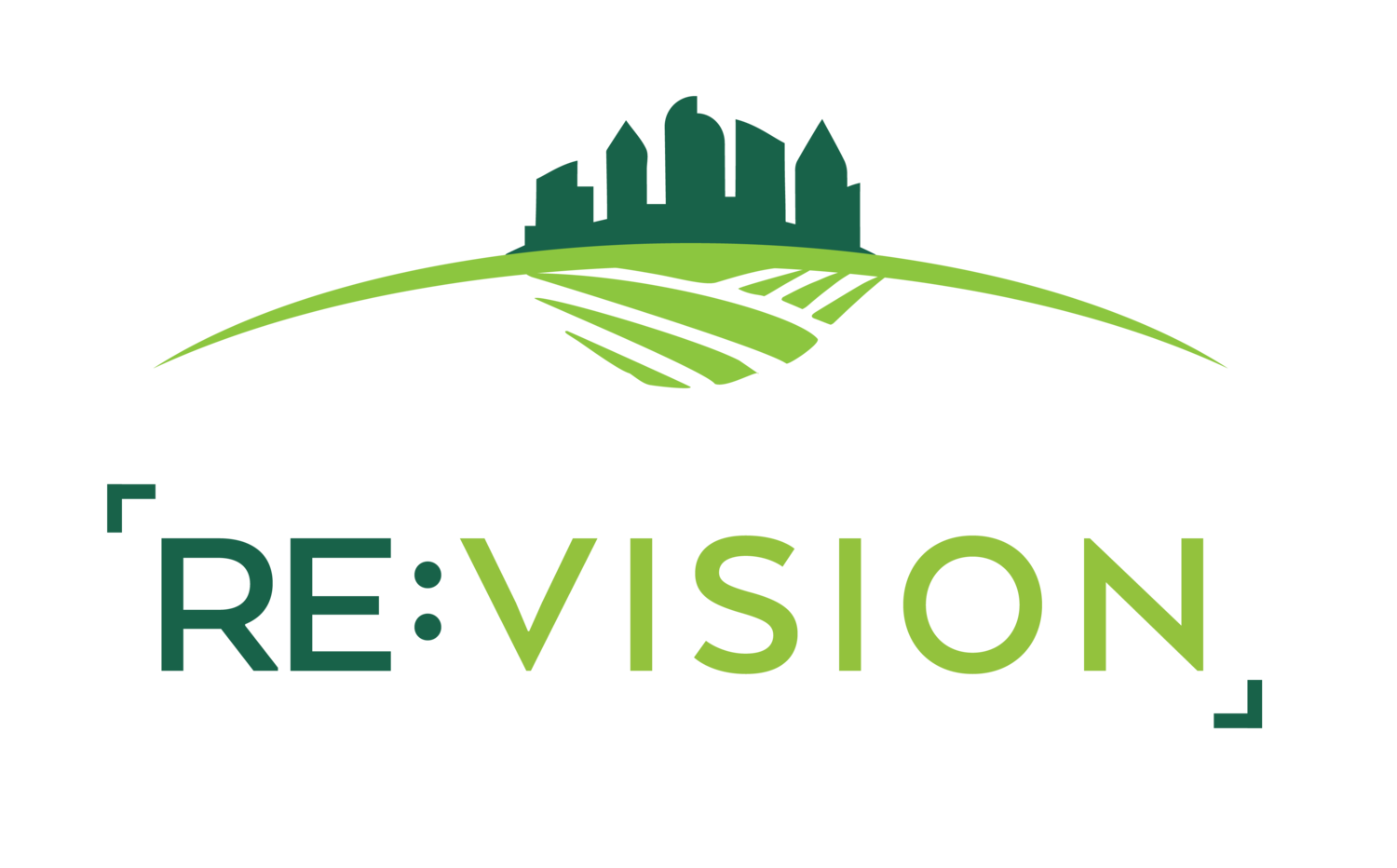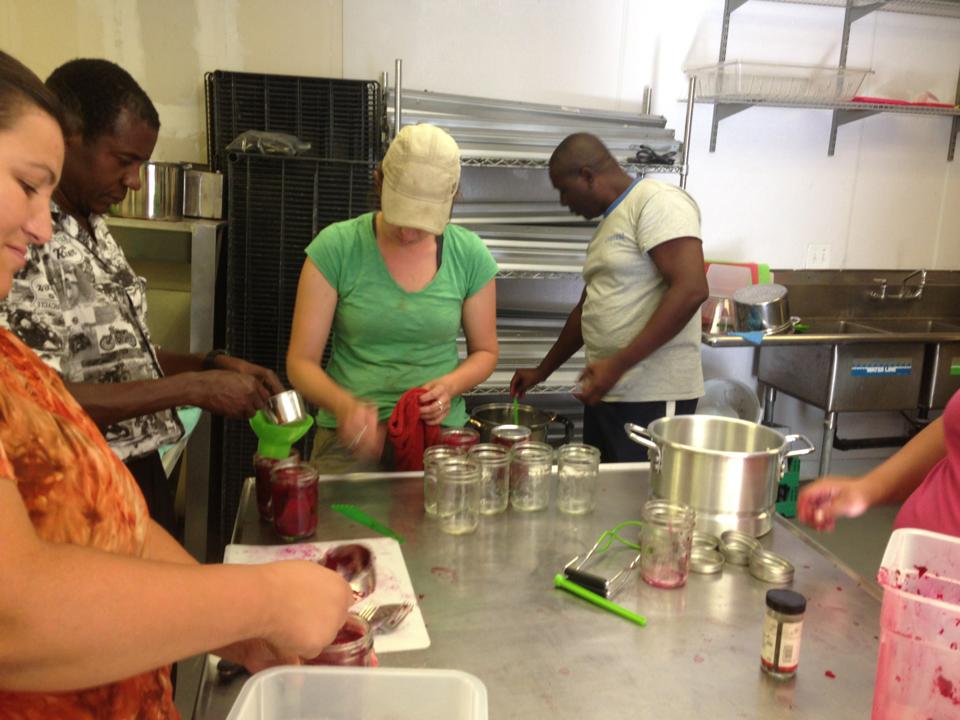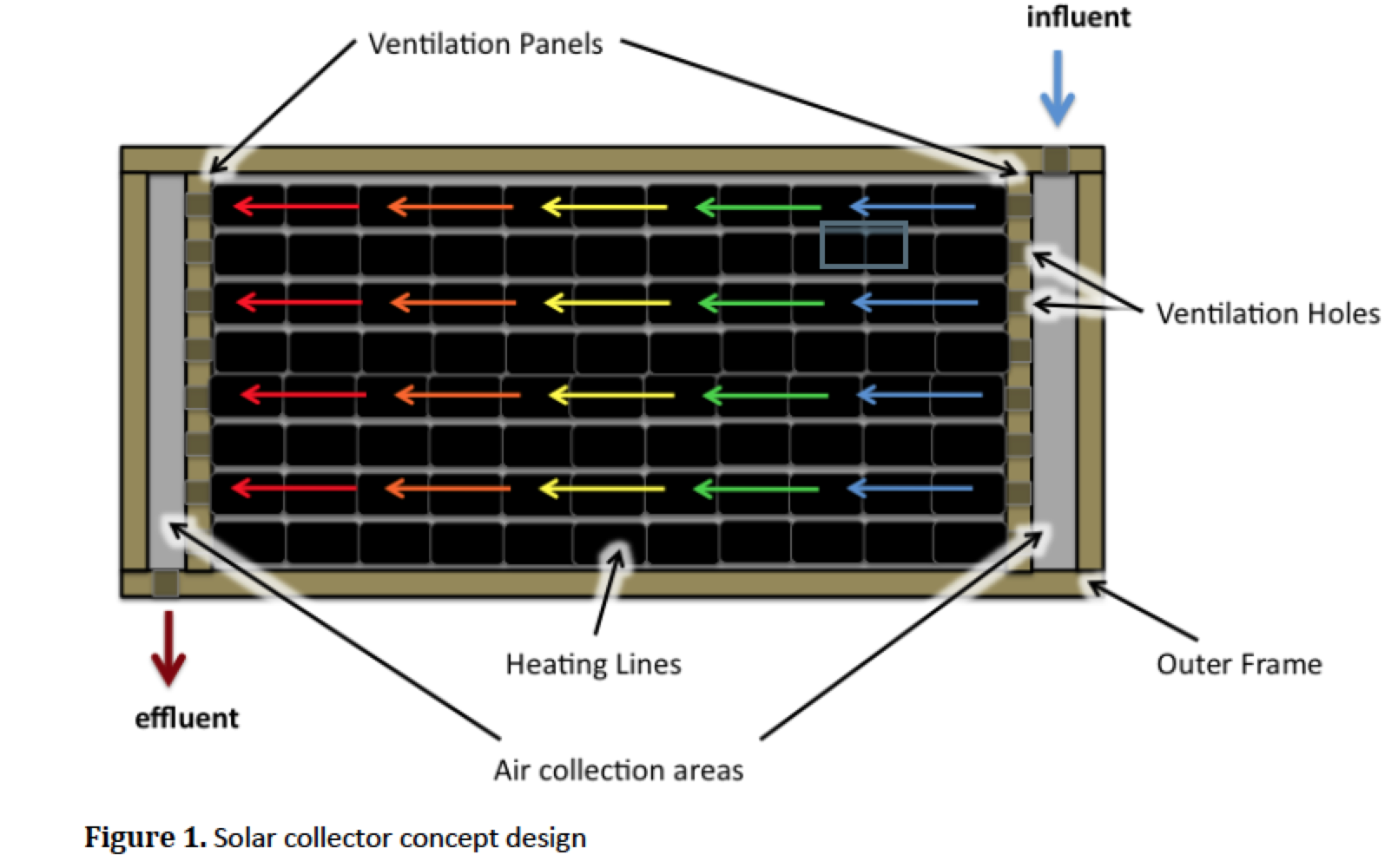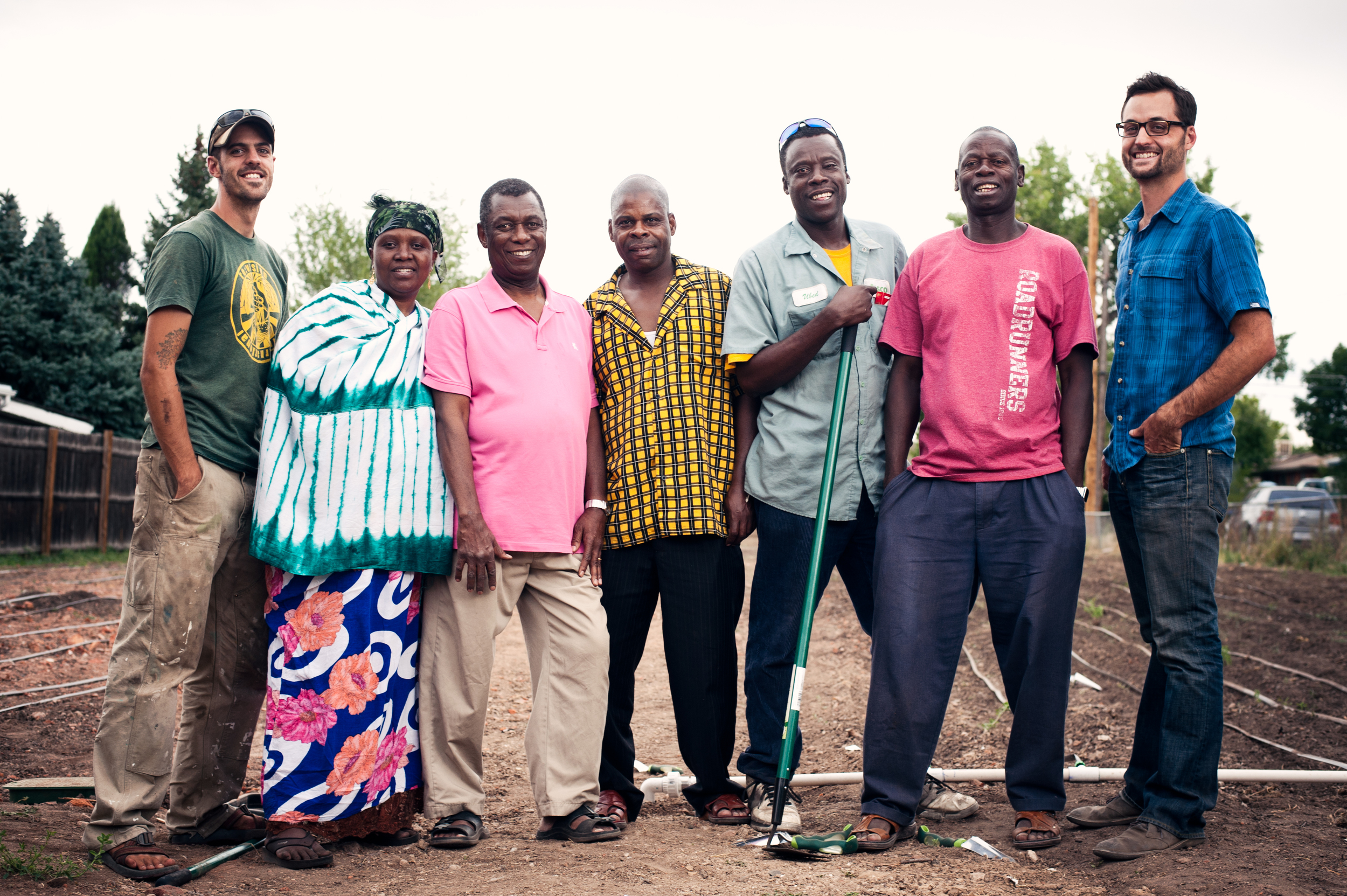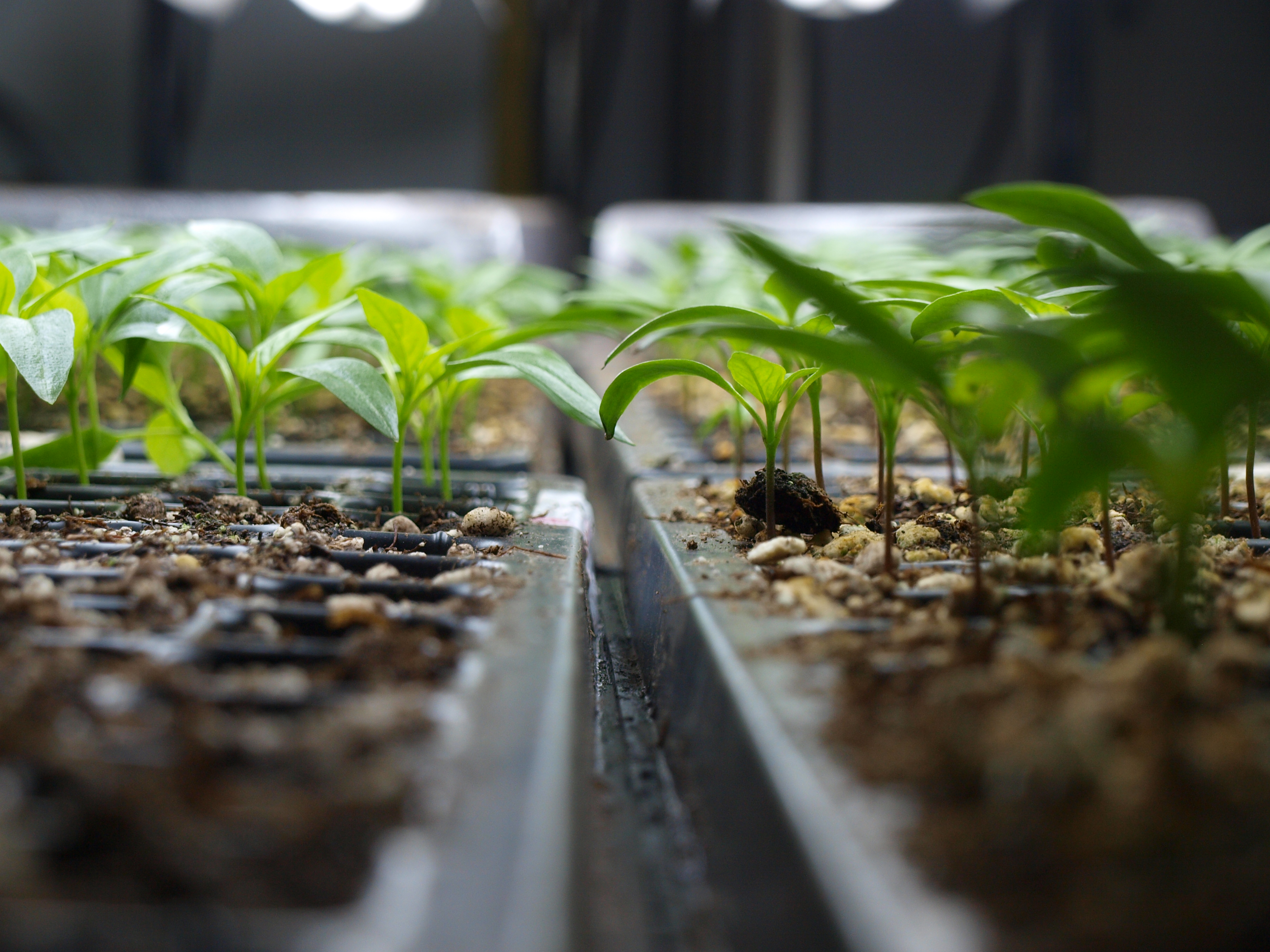
Re:Write
STORIES FROM THE FIELD, PROMOTORA RECIPES, AND CO-OP DEVELOPMENT LESSONS (PLUS SOME POLITICS AND HUMOR, TOO)
300 Backyard Gardens Underway in SW Denver!
It's growing season! Re:Vision has signed up 300 families in SW Denver to participate in it's Re:Farm Denver program. This is up from 200 families in 2013!
Here’s to spring in Colorado – where a single day can include t-shirt temperatures, sunglasses, a blizzard and even thunder snow! In the midst of all the wacky weather, Re:Vision’s promotoras and other community members are hard at work starting the sixth growing season (6 years!!) of Re:Farm Denver’s backyard garden program in southwest Denver.
We’re excited to announce that 300 low-income families have signed up for backyard gardens through our program this year! We want to take a moment to thank the Colorado Health Foundation and the Roots and Branches Foundation (Rose Community) for their support of the Re:Farm program, allowing us to expand the number of families who can experience the many health and economic benefits of growing their own fresh produce in their backyards.
Promotor Christobal Rodriguez demonstrating how to plant peppers.
Like many low-income urban communities, Westwood residents have very few choices for healthy food. Our Re:Farm program teaches families how to grow food right in their backyard. However, we know that simply helping a family start a garden isn’t a guarantee that they will change their eating habits and/or improve their health. Access is important, but without education and motivation, nothing will change. That’s why our Re:Farm program pairs each family with a promotora who is trained in gardening and in health. We train and employ residents from the community and match them with their neighbors, thus building the leadership, knowledge base, and relationships that make each neighborhood healthier, self-sufficient, and more resilient!
Promotoras delivering compost to a family garden.
Promotoras have finished delivering organic bio-compost to each household garden, and are helping families rototill their yard, breaking up the tough Denver clay into healthy, lush soil. Now we’re keeping our eye on the forecast for sunny days on which we can begin planting seeds. And just a few weeks from now, promotoras will deliver seedlings from Re:Vision’s greenhouse and help families plant tomatoes, chilies, squash, melons, and other summer delights! Later in the summer when families are harvesting their hard-earned bounty, promotoras will help lead cooking classes and workshops in Re:Vision’s new educational kitchen!
Interested in getting involved? Help more families participate in Re:Farm by donating now, by purchasing a CSA share, or by taking advantage of Revision’s Dig it Forward custom veggie garden design and installation services.
Already have a garden? Make your annual garden dollars go further by getting all your seeds, plants, soil amendments, and custom drip irrigation needs met at our Re:Seedling sales!
Launch of the Westwood Food Cooperative!
Re:Vision is excited to announce the launch of Denver's first food cooperative, the Westwood Food Coopertive!
Over the past five years, Re:Vision’s Re:Farm Denver program has laid the groundwork for a strong community food system in southwest Denver – over 300 low-income families producing food in their yards, converting two vacant properties into highly productive urban farms, distributing countless tons of fresh, organically grown fruits and veggies, and offering numerous cooking and nutrition classes.
Today, we are extremely excited to announce a milestone that makes it a community-owned food system: the incorporation and launch of the Westwood Food Cooperative (WFC), the first food cooperative in Denver, and one of the first in the country to be owned and operated by residents of a low-income community. (Actually, there was a food co-op that opened in Denver in 1976 called the Common Market but it closed in 1980.)
What is a food cooperative? Food cooperatives typically offer healthy and natural foods, many starting as local buying clubs. However, rather than being owned by a large national retailer based in another state (as most Denver grocery stores are), a cooperative is owned by its members - the community of people who shop there and receive all of the benefits!
Big plans are underway for the WFC, with the vision of opening a community-owned grocery store and food hub in Westwood, a community where you cannot find healthy food. The WFC will allow residents to sell their surplus produce at the grocery store. Any resident of the community can become a member of the WFC, meaning that when you shop at the co-op, you might buy your neighbor’s produce, or see your neighbor working there. Members get to vote on substantial business members, elect their neighbors to serve on the board of directors, and at the end of the year, profits are distributed back to the members!
Additionally, the WFC aims to launch a commercial kitchen facility that will use produce grown in the neighborhood, and train people how to create value-added food products, like salsas, prepared meals and other items that can be sold through the retail store. Walking into the grocery store, you’re likely to see the shelves stocked with quality products created by local residents and sold under the co-op brand label!
Another business opportunity for the WFC is to operate a small food hub that aggregates, washes and processes, stores and packages, and distributes food grown by Re:Vision’s family farmers, as well as other local and regional farmers. The food hub will conveniently provide quality locally-grown food products to restaurants, schools, churches, and other institutions.
Community members electing representatives to serve on the board of directors.
Through the WFC, Re:Vision is showing what place-based economic models look like. This is a business that exists to serve the needs of a specific community, and therefore can never be uprooted and outsourced somewhere else. Several weeks ago, the community elected its first board of directors: two members from the backyard gardeners, promotoras, Somali Bantu, Re:Vision and one representative of the neighborhood coalition Westwood Unidos.
Want to get involved? We have several seedling sales this spring, along with CSA shares this summer. And stay tuned over the coming year as we’ll keep you updated the co-op acquires a site, launches a crowd-funding capital campaign, and begins offering membership!
Here's a great little video to inspire you to join this movement!
A Bun in the Oven: ReVision's Educational Community Kitchen
Construction is underway on Re:Vision's educational kitchen in Westwood. The kitchen will hold classes and workshops for families wanting to learn how to cook from their garden and to eat a healthier diet. Workshops on food preservation and starting a food-related business will also be offered!
Our "kitchen" space last year during canning season!
Two years ago, when Re:Vision leased an old restaurant building on Morrison Road as our office space, an idea started brewing in our minds - to transform the back storage room into a community kitchen.
As participation in Re:Vision’s backyard garden program grew, our Morrison Road offices have become a make-shift community center. Residents and partners visit regularly for meetings, trainings and community celebrations. Unfortunately, we’ve had to leave the neighborhood to teach people how to cook the food they’ve been growing in their gardens, as no commercial kitchen facilities exist in Westwood that are open for community use.
And all the while, the idea of building our own commercial kitchen kept simmering on the back burner.
The construction begins!
In late 2012, after stewing on this idea and discussing it with the community, a vision emerged. Community members asked for a place where they can gain cooking skills, knowledge about healthy eating, and of course, share food and recipes. Many want to learn how to cook healthy meals using fresh produce from their garden. And most importantly, they wanted a gathering place where local food culture can steep until its full flavors emerge, using the wisdom of the community as its foundation. Finally – the kitchen will be an incubator helping would-be entrepreneurs to get their food-based businesses off the ground and running.
A recipe had been formed. Then, in 2013, all the ingredients began coming together.
The exhaust hood provided by our landlord about to go up...
Several generous foundations, including the Sparkplug Foundation, the Jane Musser Fund, Westwood Unidos and the USDA, gave grants. Plans were drawn up, contractors were hired, and papers were filed with the building department. Then more papers. And more. Then waiting. And more waiting. Then finally, our plans were approved!
Today, we are excited to announce that work is underway! The exhaust hood and fan have been installed, electrical work is nearly complete, and the cabinetry and learning stations are just around the corner. Re:Vision’s Educational Community Kitchen is taking shape - you can almost smell it!
Stay tuned – we’ll keep posting blogs here as the project moves forward. Want to get involved in this exciting project? Donate now or check out our in-kind needs page here.
EZ Heat Solar Furnaces
Revision, in partnership with professor Aaron Brown at Metro State, have developed a soda-can solar furnace that costs less than $40 to make, and can help a family save $30/month on their heating bills.
An energy kit Revision provided for low-income families.
Driving through the Westwood neighborhood, you’ll notice something you see in many lower-income neighborhoods – evidence of poor housing stock, like cheap single pane windows, inadequate siding, and frequently, additions that aren’t up to code. For many families in this neighborhood, the winter months are a dreaded battle to remain warm. Poor insulation and weatherization mean their houses struggle to retain heat. The cost of keeping the house livable can reach $200 or more, and many families simply cannot afford this.
In 2011, Revision won a grant from the Denver Energy Challenge to help low-income families reduce the energy usage to heat and cool their homes. Tapping into it’s extensive community-network in Westwood and southwest Denver, Revision conducted over 200 home energy audits, providing those families with an energy efficiency kit and resources on how to weatherize and insulate their homes. However, after 18 months, it was obvious that the program was not meeting the needs of low-income residents. Energy audits simply gave them a list of things to fix on their house that were too expensive, and the energy-saving kits didn’t make a big enough impact – it was like bailing out a leaky boat with your hands.
An early prototype of the solar furnace. This iteration cost approximately $80 and has 144 cans.
Enter a unique collaboration between Revision and Metro State University of Denver’s Aaron Brown, an assistant Professor of mechanical engineering. Aaron’s passion for engineering and appropriate technology in impoverished communities led him take on the issue of heating houses in Westwood. Could he come up with a solution that would help heat a home and be affordable? The result was a simple prototype: a soda-can solar furnace that costs less than $40 to build, and utilizes reclaimed resources. Dubbed “EZ Heat” by residents, these solar furnaces take air from inside the house, funnel it through a passive-solar configuration of soda pop cans painted black, and pump it back in the house. The solar gain increases the air temperature over 100 degrees, all while only using a tiny computer fan to move the air, costing less than 2 cents per day to run. The furnaces are expected to save an average of $30 per month during the winter!
Thanks to Aaron’s vision, the dedication of his students, and the work of Revision promotoras to sell the idea to the community, four low-income families have prototype furnaces installed on their homes!
Over the next several months, the furnaces will be monitored and each family’s energy bills will be examined to calculate savings. Additionally, Aaron will train Revision’s promotoras on how to build the furnaces with the goal of creating a small community-based business employing residents to build them to sell for the neighborhood.
Interested in buying a furnace? Email us to put your name on the waiting list. Want to help make this and other community efforts a reality? Donate to Revision and know your dollars are heating up change in the lives of low-income families and communities.
From Your Garden to Your Neighbor's Plate?
Home-based and community gardening is on the rise in Denver. As many gardeners know from experience, a summer's bounty can overwhelm the home kitchen. For those that would like to cultivate a hyper-local food economy by selling their bounty to their neighbors - which is currently illegal - change could be on the way.
Urban Ag in Denver: Zoning Codes
Are you a gardener in Denver? Did you know that it is currently illegal to sell your produce directly to consumers from your home or community garden in Denver? While Denver allows certain professions to sell products and services out of the home, fruits, vegetables and value-added items are not included within the law. At Revision, we would like to see change in the current policy that would allow urban gardeners and farmers to sell their produce on-site by allowing urban production to be classified as a Home Occupation. Other cities in the U.S., such as Kansas City, Cleveland, San Francisco, Philadelphia, Seattle and Portland have already implemented such changes, and they have greatly increased the access to organic produce for their residents. In order to continue on our mission towards sustainability and increased food security, it would be wise to implement this type of policy change within Denver. On the bright side, you can sell your produce and value-added items at farmers’ markets or even to restaurants. Interestingly, Denver’s current zoning regulations are in contradiction to the Cottage Foods Act that was passed by the Colorado Senate in 2012--let’s take a look.
Senate Bill 12-048: The Cottage Foods Act of 2012
In the year 2012, the Colorado Senate passed the Cottage Foods Act to strengthen Colorado’s local food industry by making it easier for individuals to create value-added food products from their home kitchen and sell on a limited scale to the general public. The bill allows you to produce and sell certain value-added items that are considered non-hazardous (meaning they have a low-risk of making people sick), including: teas, spices, dehydrated produce, nuts, seeds, honey, jams, jellies, preserves, fruit butter, baked goods and candies. You can even sell up to 250 dozen eggs per month! The bill also allows you to sell up to $5,000 per year for each value-added item that you produce, including variations of an item i.e. raspberry jam or blackberry jam. You are allowed to sell these items from your home provided that you complete a Food Safety Training course.
Current Policy: Pros & Cons
While the movement towards urban agriculture in Denver is progressing, several current policies are preventing it from growing further. At this point in time, zoning laws make it illegal to sell Cottage Food items through your home in Denver even though state law allows it. Likewise, if you grow fruits and vegetables at home or at a community garden, you are unable to sell your produce to your next door neighbor or to other consumers unless you do so from a non-residential site. These restrictions on home sales of produce and value-added items are especially difficult for low-income individuals and families, as the prices of permits and the distances necessary to travel to farmers‘ markets can present a challenge.
In order to maximize the potential of urban agriculture, we need to make amendments to the current codes that allow individuals and families to sell both agricultural products and value-added items from their homes. By doing so, community ties will be strengthened, and lower distances to travel to obtain food will encourage biking and walking. Although access to local food is increasing, there are still barriers between producers and consumers. In order to promote food justice and environmental sustainability, we need to close this gap, and progressive policy is the first step in order to achieve this goal. However, there are some potential negative impacts that need to be considered: Parking and noise control could become issues. However, with community agreement, we should not let these potential setbacks deter urban agriculture from reducing the distance between farm - or your garden - and your neighbors table.
Written by Austin Lear, Public Policy Intern
Food Insecurity & Malnutrition: A Growing Problem
The United States
Department of Agriculture recently issued results from a study that analyzed the
prevalence of food insecurity within the United States. The study analyzed two different periods of
time: 2006 to 2007 and 2007 to 2011.
These periods equate to the pre and post economic recession
respectively. The results of the study
revealed that during the economic recession, rates of food insecurity amongst
children reached 10 percent, an increase of 1.7 percent during the years 2006
and 2007. Furthermore, the results of
the study showed that food insecurity has increased within households with
working parents, and even if one parent holds a college degree there was still
an increase in food insecurity during the years 2007 to 2011. When working families are unable to provide
enough food to the table, the system is broken.
To prevent families from falling through the cracks, we must take
proactive measures. This is the goal of
Revision: to provide for those whom the system is no longer able.
Revision’s Model: Results that Speak for Themselves
Photo from: http://www.darkrye.com/content/food-desert
When we think of food insecurity, we often imagine underweight children and adults. However, in the United States, food insecurity often presents itself as an excessive intake of calorie-dense foods relative to foods that are nutrient-dense. This occurs for several reasons, but the main factors are price and the proximity to grocery stores. At Revision, we work with the Westwood neighborhood, a food desert by every definition. In areas such as Westwood, food insecurity, obesity and related chronic diseases are prevalent. In order to alleviate the problem of food insecurity in Westwood, Revision has developed a system of urban agriculture that meets the nutritional needs of Westwood by empowering families to grow their own organic produce. With over 200 families participating in our backyard farming program and two urban farms, Westwood has truly seen an increase in food security. On average, a family participating in our backyard program produces 110 pounds of produce--this results in substantial savings at the grocery store for these families. For those who participate in our community urban farms, each member takes home about ten to twelve pounds of produce per week at a cost in between $15 to $20. Clearly, at Revision, our methods of food production increase food security and reduce the costs for nutritious foods. Urban agriculture is key in increasing food security in the U.S., and Revision’s success testifies to the fact.
Written by Austin Lear, Revision Pubic Policy Intern
Water - Part I
It is something which permeates every facet of our lives – it is the foundation of hydration, our food, for our heating and cooling systems, our construction, and our clothing and shelter.
And we’re using A LOT of it.
According to Denver Water, the City & County of Denver uses 265,000 acre-feet of water. Imagine a football field with a foot of water standing on it – then picture 265,000 of those. Let’s put it another way. The average person in Denver uses 168 gallons of water per day! And lest you think its all those restaurants and businesses squandering that water, in all reality, residential (single and multi-family homes) usage accounts for over 65% of all usage (172,000 football fields full of water!).
To top it all off, 55% of all water usage at the residential level is for outdoor irrigation/use, i.e. your sprinkler system.
A quick scenario to bring this home. My wife and I recently purchased our first home in the Barnum neighborhood in August. The average sprinkler head sprays about 3.5 gallons per minute and the home had a sprinkler system consisting of about 10 heads. Now, if we watered as per Denver Water’s Stage 2 watering rules (in effect as of April 1st this year), which is only twice per week, we’d use about 27,000 gallons from May through September and spending about $75 in water bills.
Now, if we switched entirely over to drip irrigation and grew vegetables (which we’re doing), and watered 45 minutes every single day, in that same five month period we’d use approximately 3,200 gallons and spend $8.32!!! Not only would we save $67, we’d also save enough water to provide the average Denver home with 141 days of water!!!! Not to mention all the money we’d be saving on food from the wondrous produce we’ll be harvesting.
And this is a reality for 200 low-income families this year through Revision’s Re:farm Denver program. 200 families are receiving drip-irrigation systems, using less water, saving money, and are empowered to lead healthier lives.
Want to help out? Donate now.
Community-owned Cooperative
Since launching Re:farm Denver in Westwood in 2009, we’ve always had the goal of community ownership of the program. No matter how great the short-term impact – currently, Revision is working with 203 families to establish backyard gardens, and over 40 Somali Bantu refugee families to grow food at Revision’s 2 urban farms in Westwood – if the community does not own and control the entire program, then in the long run it will fail. The biggest challenge, however, has been figuring out the financial sustainability. How can we help the community develop the financial capacity to run the program?
In 2012, Revision’s staff and board started discussing the idea of developing a community food cooperative as a strategy to help community families take over the program and its goals of food production, distribution, and increasing economic opportunities for residents. The cooperative business model is particularly appealing as it brings together a group of people to work together to solve their common needs through shared risk and shared reward. This model is all about member-ownership and member-control - exactly what we have been trying to implement in our program. The coop model goes deeper, however, than just benefiting each member. It is an economic model that focuses on building wealth within the community. A cooperative can help solve the deeper root problems that we are addressing by getting to the economic conditions that result in a lack of healthy food and other resources.
The intent is to have the cooperative aggregate, market, and distribute excess food that is being grown in the community through Re:farm Denver (to date, the program has empowered the community to grow 36,000 pounds of organic produce!). The cooperative will purchase produce from them, providing some much needed income, and at the end of the year, if the coop has been profitable, equity or dividends will be distributed to each member based on their contributions to the cooperative. This is creating income and equity at the same time. Each household will have the opportunity to become member-owners of the cooperative.
Additionally, each member of the cooperative gets an equal vote and an equal voice in the governance and decisions of the organization. They elect a board of directors and will periodically directly make decisions that affect the direction of the coop. Through this form of democratic control, people have a say in the type of community they want. This direct involvement is incredibly powerful, particularly for a community that has long been marginalized and made to believe that they have no power.
Over the past 12 months, Revision has been discussing the idea with family members, residents, and other community partners. There is great excitement about the potential economic impact a cooperative business can have on the community. Over the next several months, we will be developing a steering committee, and working with funders and partners to develop a feasibility study and business plan for the cooperative. Stay tuned for updates!
Community-grown Seedlings
During the dark, cold days of winter, we warm up by reading through stacks of seed catalogues and dreaming of the hot summer days ahead! In order to supply our 200 backyard gardens and 2 urban farms, we have to grow approximately 10,000+ seedlings – no small task!
We just finished our greenhouse at Kepner Middle School, so since we needed to start our seedlings before construction was complete, the little guys have been cozy indoors under grow lights. The back half of our office has been converted into a tropical greenhouse (on cold days, you can find staff members warming up over the plants instead of working at their desk!)
This year we are excited to announce our first annual plant and seed sale! Mark your calendars now for Saturday, April 27th and May 4th and 11th – just in time for Mother’s Day. Not only do we use certified organic seed and growing mediums, guaranteeing quality plants that you can trust, but proceeds from our plant sale will support backyard gardens for low-income families!In addition to seeds and seedling transplants, we’ll be designing and selling custom drip irrigation kits for your garden (bring a detailed, dimensioned drawing of your garden along with the distance to the water source with you), and we’ll have Maxfield’s Organics soil amendment products for sale! Make us your one-stop shop for gardening this year.
Winter Farm Work
Despite the recent snowy and cold weather in Denver, we’ve been busy getting our gardens and our urban farms ready for a productive growing season!
During February, AmeriCorps members helped Revision complete its greenhouse at Kepner Middle School – just in time to grow the more than 10,000 seedlings that Revision will plant and sell this spring! The team also helped construct two new high-tunnel hoop houses at the Ubuntu Urban Farm, providing an additional 2000 square feet of protected growing space. These high-tunnels will extend our growing season by several months, and will also help protect crops during the summer. A special thanks to Mr. Michael Jeronimus for generously donating these hoop house materials – they will make all the difference.
We are excited for our first full growing season at the Ubuntu Farm, a collaboration with the Somali Bantu Development Council and Revision’s promotoras and other community partners. We will be producing food for the community while developing new economic opportunities as well. Both the Kepner Urban Farm and the Ubuntu Farm are cornerstones in developing food security and economic opportunity for southwest Denver.
Stay tuned for volunteer days, farm tours, sustainability classes, and farm dinners this year!
